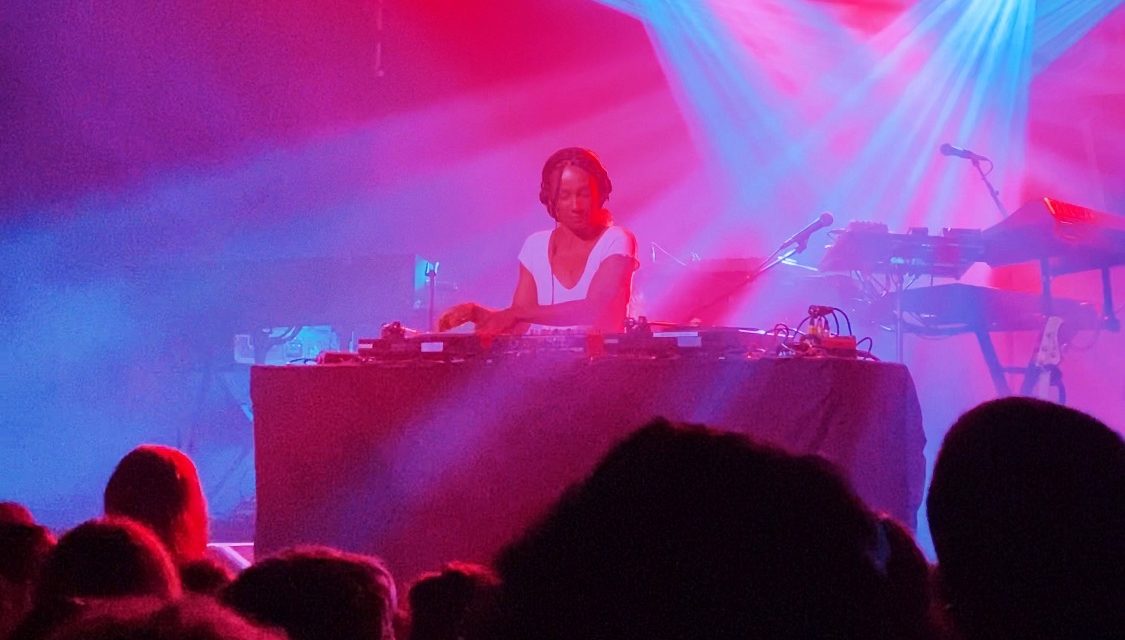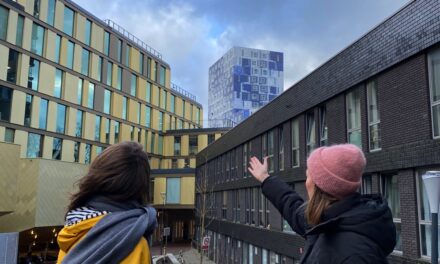Fast, dark beats, black outfits while dancing in industrial sites – Electronic Music has played an important part in shaping Berlin into what it is right now. The city has gathered itself a reputation of total freedom and entertainment. Many even consider Berlin the capital of techno. Just as the city changed over the years, the sound of electronic music and techno changed with it. Nevertheless, many criticize that there is missing education on the origin of techno and the lack of diversity when it comes to the DJ scene in Berlin.
THE ORIGINS OF TECHNO
Even tough techno was not invented in Berlin, the history of techno is reflected in the history of the city and vice versa. Berlin just as techno is fast moving and everchanging. “I would say Berlin is the European capital of electronic music and Detroit is the spiritual home of techno.” says Brendan Power.
TECHNO IMPACTS BERLIN
The birth of Berlin Techno is deeply connected with the fall of the Berlin Wall. When Germany was reunited on the 9th of November in 1989 this brought people together. Finally, they were able to travel freely and experience life without restrictions. This sense of freedom added to the success of the Berlin Techno culture.
“The big advantage Berlin had after the wall came down was that there was so much space, that could be used. When the East became obtainable people from the West went over and found these industrial sites and factories that were left there. Being able to have all this free space was very important for the culture to flourish.”, says Laura Aha, music journalist and DJ. Approximately one-third of the buildings in east berlin were empty.
This led to the emergence of a broad independent subculture. People took over these spaces and for example, transformed basements into clubs and bars. Here young people did whatever they wanted to do and therefore many cultures such as the queer one found a home. The first official techno club was opened by Dimitri Hegemann even before the wall fell in 1988. It was called the UFO. After the fall of the wall, the UFO was renamed, and just like that Tresor was born. It was located at Leipziger Straße in a repurposed chamber of the “Wertheim-Kaufhaus”. With its raw industrial charm, the club soon became an important example of what a club in Berlin was supposed to look like.
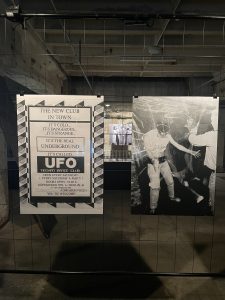
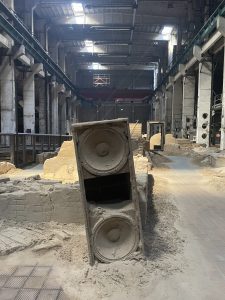
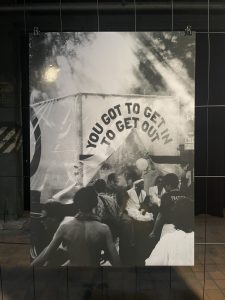
Pictures from the exhibition “Tresor 31” about the early years of the club. © Lukas Mayr
“Techno was like the soundtrack of life in Berlin. The key difference between most cities and Berlin is, that in Berlin the venues don’t close until the people go home. Here it is open-ended as long as people are dancing. This hedonistic approach to partying attracted a lot of artists to come to Berlin.”, says Brendan Power, co-founder of the Institute for Sound and Music. Because of this freedom, many new ways of making electronic music originated in Berlin.
In the book “Berlin Possibility” Tobias Rapp and Anton Waldt, accompanied by pictures by Christian Brox, explore the beginnings of techno in Berlin. They say that techno was and is still the most popular genre when it comes to clubs in the city. Nevertheless, throughout the years the gay and punk scene left their imprint on the music. The developing landscape of clubs offered a playing field for a broad spectrum of related genres such as Acid, Electro, Drum&Bass or Italo Disco.
THE SCENE NOW
Nowadays you can find a lot of different music styles in Berlin when going clubbing. The DJ scene is much bigger, and many people come to Berlin to pursue a career in this field. “I often make the comparison that in LA the waiter is an aspiring actor, whereas in Berlin the person serving your table often wants to become a music producer.”, says Brendan Power.
In this ever-growing scene organizers and clubs also want to make sure that there is diversity in their line-ups, not only when it comes to the music but primarily when it comes to the people making that music.
Techno and electronic music have come a long way. With new generations joining the scene the music changes and adapts to their lifestyle. Nevertheless, Laura talks about the struggles she faces in the scene. “I feel like you have to be really confident and get your elbows out if you want to succeed in the scene.”, she says. Electronic music has emerged from the basements and made it into the mainstream.
